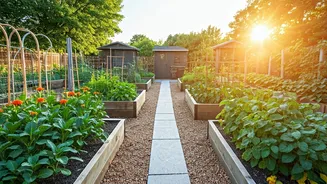Challenging Preconceptions About Aging
Many people harbor misconceptions regarding senior living in India. One prevalent myth suggests that aging inevitably leads to social isolation and dependence.
However, this is far from the reality for many. While traditional family structures once provided constant care, urbanization and changing family dynamics have altered the landscape. Today, senior living communities offer a supportive environment that fosters independence and social engagement. These communities provide opportunities to combat loneliness, encourage active lifestyles, and facilitate meaningful connections. It is important to view retirement not as an ending but as a new beginning, a time for self-discovery and continued personal growth. Addressing these myths opens the door to creating a fulfilling and vibrant life for seniors in India.
Community Living: Redefining Seniority
Community living is rapidly gaining traction in India as a preferred option for seniors, moving beyond the traditional image of old-age homes. These communities are designed to foster a sense of belonging, offering shared spaces and activities that promote social interaction. Residents participate in everything from yoga and meditation sessions to book clubs and cultural events. The benefits are numerous: reduced loneliness, enhanced mental well-being, and a renewed sense of purpose. Community living also often includes assistance with daily tasks, healthcare services, and security, providing peace of mind to both seniors and their families. This model allows seniors to maintain their independence while being part of a supportive network, encouraging a vibrant and active lifestyle in their golden years. This shift allows seniors to live a more fulfilling and engaged life.
Embracing a Fulfilling Lifestyle
Post-retirement life in India offers a unique opportunity to cultivate a lifestyle centered on personal fulfillment and well-being. This involves making conscious choices about physical, mental, and social health. Regular exercise, whether through yoga, walking, or engaging in hobbies, is essential for maintaining physical fitness and mobility. Seniors can also prioritize mental well-being by engaging in activities that stimulate the mind, such as learning new skills, reading, or pursuing creative interests. Social engagement is crucial; building and maintaining strong relationships with friends, family, and community members can combat feelings of isolation and promote a sense of belonging. Embracing a balanced diet and managing chronic conditions proactively is also key. By prioritizing these elements, seniors can create a lifestyle that is both enriching and conducive to a long, healthy, and happy life.
Financial Planning and Security
Financial planning plays a pivotal role in ensuring a comfortable and secure retirement for seniors in India. Proper planning helps manage expenses, pursue interests, and enjoy peace of mind. Seniors should assess their retirement income, including pensions, investments, and savings, to understand their financial resources. Developing a realistic budget and sticking to it is essential for managing expenses and avoiding financial stress. Exploring various investment options, such as fixed deposits, government schemes, and mutual funds, can help generate income and grow savings. It's crucial to consider healthcare costs, which can be significant, and to explore health insurance options. Seeking professional financial advice can provide valuable insights and guidance on making informed financial decisions. Proactive financial planning allows seniors to live with greater financial security and independence, which adds to a more secure and enjoyable retirement experience.
Staying Connected: Social Engagement
Maintaining social connections is vital for the overall well-being of seniors in India. Loneliness and social isolation can negatively impact both physical and mental health. There are many ways to stay connected and engage with others. Participating in community activities, such as joining clubs, volunteering, or attending social events, provides opportunities to meet new people and build relationships. Utilizing technology, such as smartphones, social media, and video calls, enables seniors to stay in touch with family and friends, regardless of distance. Engaging in intergenerational interactions, by interacting with younger family members or volunteering in youth programs, can create a sense of belonging and purpose. Prioritizing social connections creates a network of support that can enrich their lives, reduce feelings of isolation, and foster a sense of community.















